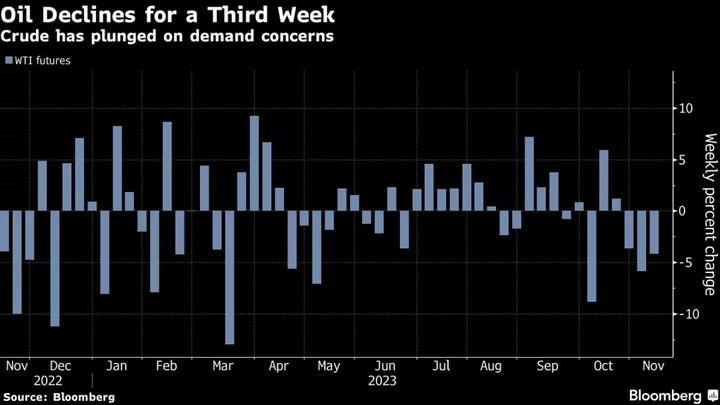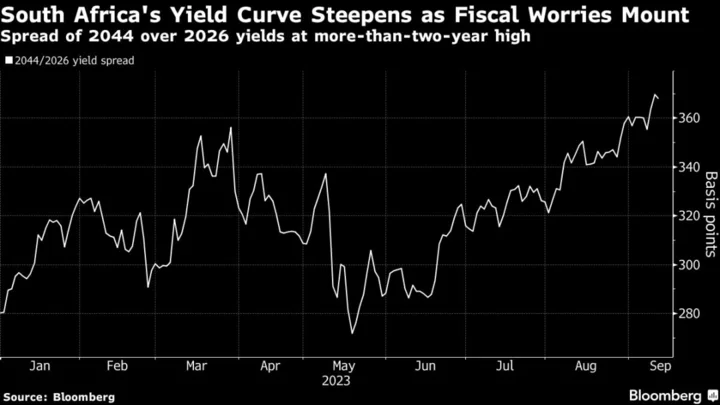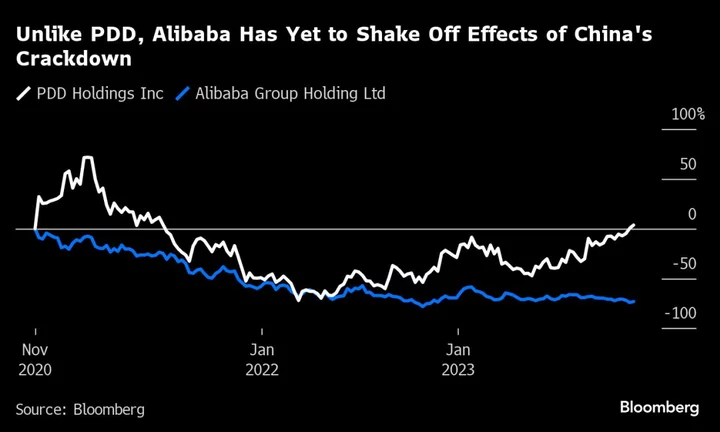China’s 6 trillion yuan ($832 billion) hedge fund industry is bracing for a historic shakeup that will likely cause thousands of smaller managers to shut and impose stricter regulations on larger peers that have become a growing force in local markets.
Draft rules set to take effect as soon as September will impose a 10 million yuan asset minimum on Chinese hedge funds, a threshold that is expected to force the liquidation of more than a third of the existing products tracked by Shanghai Suntime Information Technology Co. The rules will also cap leverage levels and the size of investments hedge funds can make in single securities.
China is revamping its hedge fund regulation as officials seek to professionalize an industry that has grown sevenfold over the past decade and stands out globally for its large number of players. While China’s smaller funds often sit at the top of performance rankings, many also deploy high levels of leverage and experience extreme volatility. Analysts expect larger firms such as Perseverance Asset Management and Bridgewater Associates LP to benefit from the new rules even as they face higher operational and legal costs.
“The compliance pressures for smaller funds are turning acute, and it’s foreseeable that a big number of them will exit the stage,” said Zhou Yiqin, president of GuanShao Information Consulting Center, a financial regulations specialist. “The competitive edge of the big firms will only become more evident.”
Almost 35,000 products, or about 37% of all existing hedge funds, were smaller than even half of the 10 million yuan minimum asset requirement, the Shanghai Suntime data show.
The new threshold first appeared in the the Asset Management Association of China’s new registration rules for all private funds, which took effect May 1. The association followed up with draft rules governing the operations of hedge funds specifically, requiring any product to liquidate if the net asset value stays below that threshold for 60 consecutive trading days.
The AMAC said the draft remains in the feedback stage and it will “earnestly” analyze opinions collected and “optimize” the guidelines.
Unlike in the US where the largest 500 hedge funds manage about 57% of industry assets, the market in China is more concentrated, with the top 500 firms holding about 84% of assets, according to an AMAC report in 2021, leaving little to small peers. Those that lack size, however, are making up for it with outsized returns in the first half of this year, according to Shenzhen PaiPaiWang Investment & Management Co., a data provider.
Under the level of 500 million yuan in assets — deemed the “survival line” — managers tend to face difficulties to cover expenses unless they can sustain higher-than-average performance fees, according to Jiao Runmeng, a senior product manager at Suntime.
Smaller funds are already planning for the upcoming changes. Many products managed at the previously top-ranked Xinhong Investment, a small firm based in Dongguan in the Guangdong province, will likely be liquidated, said general manager Lu Weidong. The smaller products often serve smaller investors, who often put in the minimum 1 million yuan but are a more stable source of funding than larger or institutional investors.
“The small businesses in the industry are already struggling, and it’s not easy to get a license in the first place,” Lu said. These rules take away the hope of future growth, he said.
More onerous requirements on asset size make it more difficult for small firms to employ multiple strategies, hampering efforts to diversify and reduce risk, said Huang Weimin, a former hedge fund manager. That would make them more likely to lose clients — not just their best managers — to bigger rivals.
“It’s now a good opportunity for the big fish to eat the small,” said Huang, who now provides asset allocation advice to entrepreneurs and business associations.
The draft hedge fund rules also laid out restrictions ranging from a 200% cap on leverage to a 25% ceiling on a fund’s net assets in any single investment. They also block loopholes such as providing “channel services” that typically skirt requirements on investment scope, leverage or investor qualifications.
Premier Li Qiang toughened the curbs in July by approving a broad regulation on private funds that raised penalties for violations. The first State Council-level legislation on the industry would also enable criminal investigations into irregularities like illegal fundraising and insider trading, and can invalidate contracts that breach rules, according to law firms.
Diverse Strategies
The concentration ceilings, among others, threaten to hamper the strategies of companies including top performers such as Shanghai Bull Asset Management Co., whose distressed-debt fund scored a 523% gain last year by investing in bonds like Tsinghua Unigroup Co. and CIFI Holdings Group Co.
“Strategies like ours need to be concentrated,” chief investment officer Shi Yafei said. “When you are already targeting distressed issuers, the more scattered your holdings are, the more likely you’ll end up buying more risky ones.”
The increased compliance costs and regulatory risks will significantly reduce the appeal of running a hedge fund, GuanShao’s Zhou said.
For Shanghai Bull’s Shi, local hedge funds face the prospect of losing some of their flexibility and competitiveness compared with rivals in other markets.
“This industry needs both big and small players,” Xinhong’s Lu said, comparing the small asset managers to small and medium-sized enterprises that the government often supports for job creation and tax contribution. “The big ones started out as small ones.”









